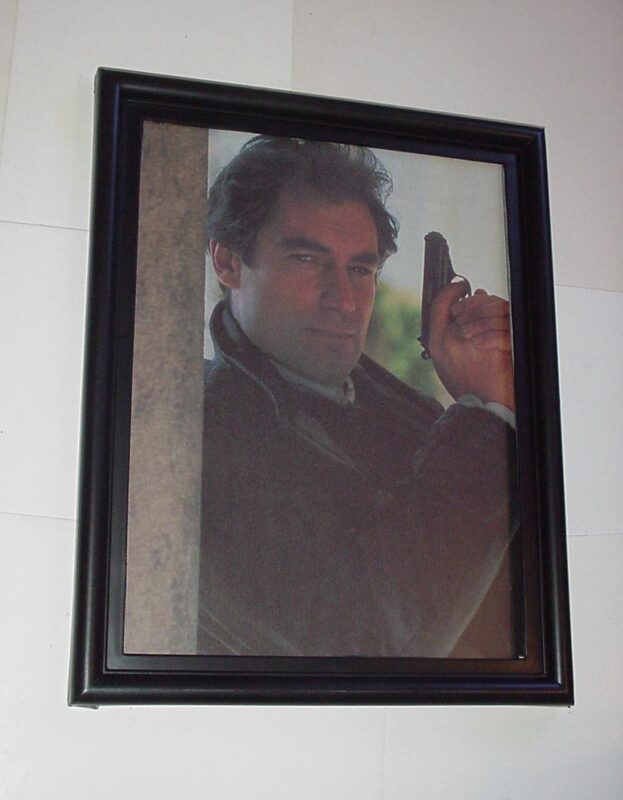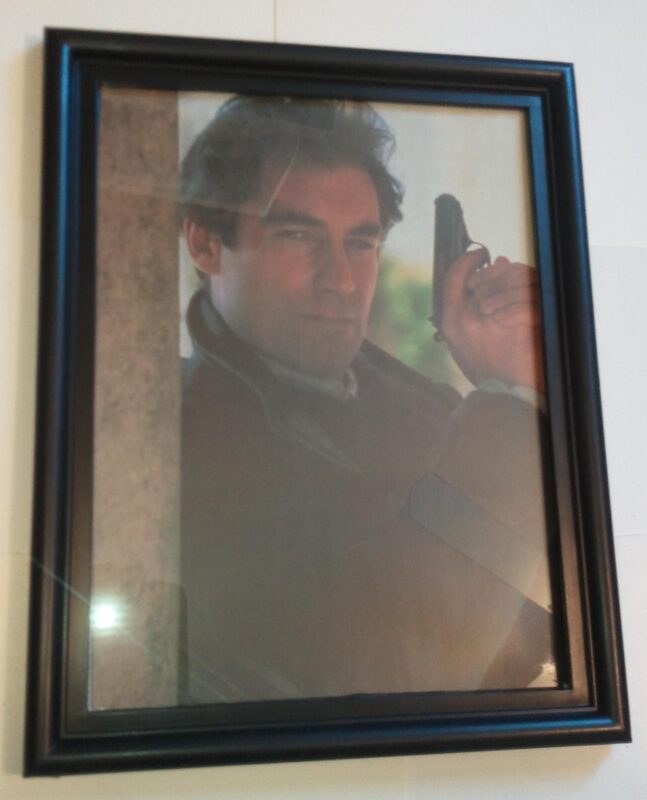Description
The James Bond series focuses on a fictional British Secret Service agent created in 1953 by writer Ian Fleming, who featured him in twelve novels and two short-story collections. Since Fleming’s death in 1964, seven other authors have written authorised Bond novels or novelizations: Kingsley Amis, Christopher Wood, John Gardner, Raymond Benson, Sebastian Faulks, Jeffery Deaver and William Boyd, with a further instalment due in September 2015 by Anthony Horowitz. Additionally Charlie Higson wrote a series on a young James Bond, and Kate Westbrook wrote three novels based on the diaries of a recurring series character, Moneypenny.
The character has also been adapted for television, radio, comic strip, video games and film. The films are the longest continually running and the second-highest grossing film series to date, which started in 1962 with Dr. No, starring Sean Connery as Bond. As of 2014, there have been twenty-three films in the Eon Productions series. The most recent Bond film, Skyfall (2012), stars Daniel Craig in his third portrayal of Bond; he is the sixth actor to play Bond in the Eon series. There have also been two independent productions of Bond films: Casino Royale (a 1967 spoof) and Never Say Never Again (a 1983 remake of an earlier Eon-produced film, Thunderball).
Timothy Peter Dalton (born 21 March 1944 or 1946) is a British actor of film and television. Dalton is known for portraying James Bond in The Living Daylights (1987) and Licence to Kill (1989), as well as Rhett Butler in the television miniseries Scarlett (1994), an original sequel to Gone with the Wind.
Dalton had been considered for the role of James Bond several times. According to the documentary Inside The Living Daylights, the producers first approached Dalton in 1968 for On Her Majesty’s Secret Service although Dalton himself in this same documentary claims the approach occurred when he was either 24 or 25 and had already done the film Mary, Queen of Scots (1971). Dalton told the producers that he was too young for the role. In a 1987 interview, Dalton said, “Originally I did not want to take over from Sean Connery. He was far too good, he was wonderful. I was about 24 or 25, which is too young. But when you’ve seen Bond from the beginning, you don’t take over from Sean Connery.” In either 1979 or 1980, he was approached again, but did not favour the direction the films were taking, nor did he think the producers were seriously looking for a new 007. As he explained, his idea of Bond was different. In a 1979 episode of the television series Charlie’s Angels, Dalton played the role of Damien Roth, a millionaire playboy described by David Doyle’s character as “almost James Bond-ian”.
In 1986, Dalton was approached to play Bond after Roger Moore had retired, and Pierce Brosnan could not get out of contractual commitments to the television series Remington Steele. However, Dalton would soon begin filming Brenda Starr and could do The Living Daylights only if the Bond producers waited six weeks.
Dalton’s first appearance as 007, The Living Daylights (1987) was critically successful, and grossed more than the previous two Bond films with Moore, as well as contemporary box-office rivals such as Die Hard and Lethal Weapon. With a worldwide gross of $191 million, The Living Daylights became the fourth most successful Bond film at the time of its release.
Unlike Moore, who had played Bond as more of a light-hearted playboy, Dalton’s portrayal of Bond was darker and more serious. Dalton pushed for renewed emphasis on the gritty realism of Ian Fleming’s novels instead of fantasy plots and humour. Dalton stated in a 1989 interview: “I think Roger was fine as Bond, but the films had become too much techno-pop and had lost track of their sense of story. I mean, every film seemed to have a villain who had to rule or destroy the world. If you want to believe in the fantasy on screen, then you have to believe in the characters and use them as a stepping-stone to lead you into this fantasy world. That’s a demand I made, and Albert Broccoli agreed with me.”
A fan of the literary character, often seen re-reading and referencing the novels on set, Dalton determined to approach the role and play truer to the original character described by Fleming. His 007, therefore, came across as a reluctant agent who did not always enjoy the assignments he was given, something seen on screen before, albeit obliquely, only in George Lazenby’s On Her Majesty’s Secret Service. In The Living Daylights, for example, Bond tells a critical colleague, “Stuff my orders! … Tell M what you want. If he fires me, I’ll thank him for it.”
The Living Daylights (1987) is the fifteenth entry in the James Bond film series and the first to star Timothy Dalton as the fictional MI6 agent James Bond. The film’s title is taken from Ian Fleming’s short story, “The Living Daylights”. It was the last film to use the title of an Ian Fleming story until the 2006 instalment Casino Royale.
The beginning of the film resembles the short story, in which Bond acts as a counter-sniper to protect a Soviet defector, Georgi Koskov. He tells Bond that General Pushkin, head of the KGB, is systematically killing British and American agents. When Koskov is seemingly snatched back, Bond follows him across Europe, Morocco and Afghanistan.
Frame is shrinkwrapped until time of purchase. Ships boxed with packing peanuts.
THE PERFECT GIFT!
Related products
-

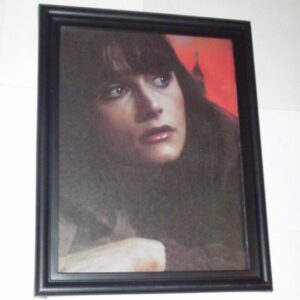
Superman Pin-up #61 FRAMED Movie Lois Lane Margot Kidder
$44.99 Add to cart -
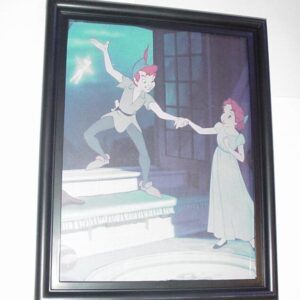
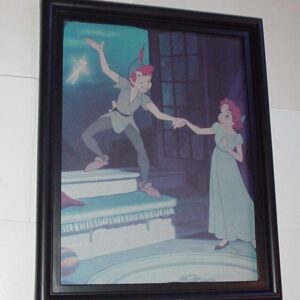
Disney’s Peter Pan Pin-up # 1 FRAMED Peter Wendy and Tinker Bell
$44.99 Add to cart -


Star Wars Pin-up #26 FRAMED Harrison Ford Return of the Jedi
$44.99 Add to cart -
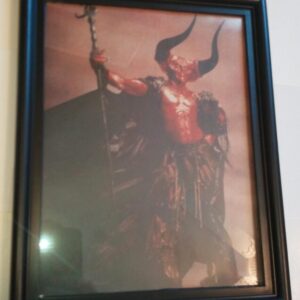
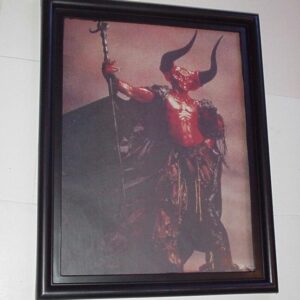
Legend Pin-up # 2 FRAMED Tim Curry Satan aka Lord Darkness
$59.99 Add to cart
